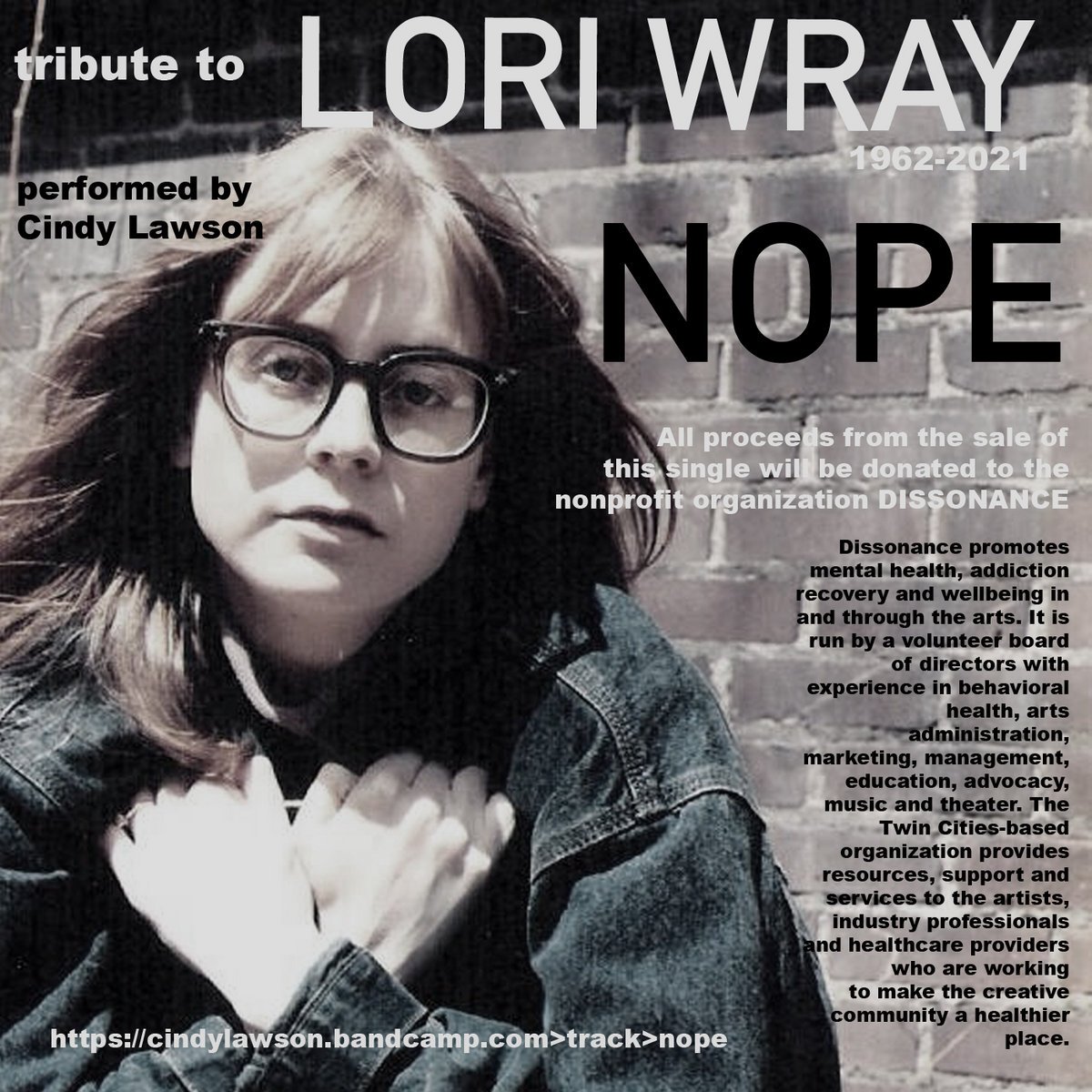In February 2021, the world lost another artistic force when beloved singer/songwriter Lori Wray, who graced Minneapolis stages from the late 80s to the early 2000's, passed away. A year later, fellow Twin Cities music legend Cindy Lawson has recorded and released Lori’s song “Nope” as a tribute to her good friend, and is donating proceeds to Dissonance.
All of us at Dissonance are very honored to help lift up Lori’s memory, grateful to Cindy, and committed to being good stewards of the proceeds through our work promoting mental health, addiction recovery and wellbeing in and through the arts.
You can be part of this tribute, too — please listen to “Nope” and purchase the download from Cindy’s Bandcamp page. The single also will be on Cindy’s upcoming album to be released May 20.
About Lori Wray: Leaving Lawrence, Kansas, in the mid-1980s, Lori Wray joined a great migration of midwestern musicians seeking adventures and glory in Minneapolis, hometown of the Replacements and Husker Du. Initially an anomaly in the male-dominated independent rock scene of the time, Lori’s songs, charisma and ambition quickly caught the attention of music fans and fellow artists. Her 1989 EP “Introducing Lori Wray,” received accolades in the music press, including Rolling Stone, which called her a “Heartland Debby Harry.” She went on to perform with the bands Everthread, The Mandrakes, and Von Bulows. Other notable solo recordings included 1998’s “Safely Crass” and 2000’s “Hisstory.”
About Cindy Lawson: Minneapolis rock pioneer Cindy Lawson was frontwoman of The Clams in the 1980-90s and later Whoops Kitty. She returned to the stage last fall with a fresh EP, New Tricks—rocking like she never left. Learn more in this 2021 Star Tribune profile and 2016 The Current blog post, and look for her new album this May.









